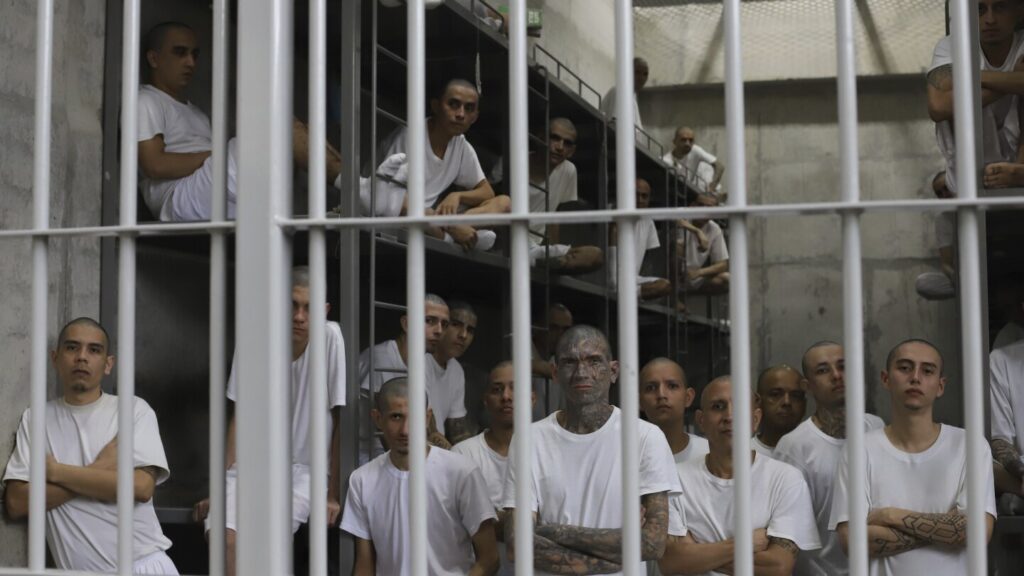The Trump administration and El Salvador’s president have agreed to allow the U.S. to send detained migrants and citizens to El Salvador, which has suspended certain rights in its battle against street gangs. While the U.S. cannot deport its citizens, there are legal complexities to consider, according to Secretary of State Marco Rubio. El Salvador’s aggressive approach against crime, led by President Bukele, includes arresting over 84,000 individuals with minimal due process. The centerpiece of Bukele’s anti-crime strategy is the Terrorism Confinement Center (CECOT), a prison known for its harsh conditions and overcrowding.
The CECOT, capable of housing 40,000 inmates, lacks rehabilitation programs and keeps prisoners confined without outdoor access. Bukele’s justice minister has stated that these prisoners will not reintegrate into society. El Salvador’s prison population has surged, reaching around 110,000 individuals, including those awaiting trial. Human rights organizations have raised concerns over the high death toll and reports of abuse and torture within El Salvador’s prisons during the government’s crackdown on gangs.
Bukele’s aggressive stance on crime, exemplified by the CECOT, has transformed El Salvador’s prison system but has also sparked criticism from human rights advocates for the treatment of detainees. The government’s actions have raised questions about adherence to human rights standards and the long-term impact on the criminal justice system in the country.

